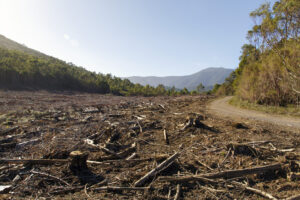‘Adaptation saves lives, delay means death’
As residents of Lismore tried to escape massive floods on their roofs, the IPCC delivered its latest report on climate impacts as well as adaptation and the news is not good. It warns that Australia faces significant “cascading and compounding” risks due to climate change, including damage from bushfires, floods, drought and sea-level rise. But we can avoid the worst impacts and save lives if we act now. To discuss the latest findings, as well how far Australia’s policies are lagging behind, we spoke to one of the authors of the IPCC report, Dr Johanna Nalau, as well as Alia Armistead from the Australia Institute’s climate & energy team.
This was recorded live on Tuesday 1 March 2022 and things may have changed since recording.
Host: Ebony Bennett, Deputy Director at the Australia Institute // @ebony_bennett
Guests:
Dr Johanna Nalau, Griffith University, IPCC Lead Author Chapter 15 Small Islands // @DrJNalau
Alia Armistead, Climate & Energy researcher, the Australia Institute // @aliaarmistead
The Australia Institute // @theausinstitute
Producer: Jennifer Macey // @jennifermacey
Theme Music: Pulse and Thrum; additional music by Blue Dot Sessions
Related research
Between the Lines Newsletter
The biggest stories and the best analysis from the team at the Australia Institute, delivered to your inbox every fortnight.
You might also like
Five priorities for the next parliament if we want a liveable Australia
Climate and nature crises won’t pause while politics plays out.
The Australia Institute launches new documentary – Save Tuvalu, Save The World
The Australia Institute has officially launched a new documentary taking viewers to front line of the fight against climate change.
Ensuring workers’ safety in the climate crisis
As I watched the fires in Los Angeles unfold in January this year, my mind of course reflected on the 1999-2000 Black Summer bushfires in Australia. Both these seasons have wrought significant damage to humans and other animals, and to land, infrastructure and property. There has been a huge personal, collective and financial toll involved.





